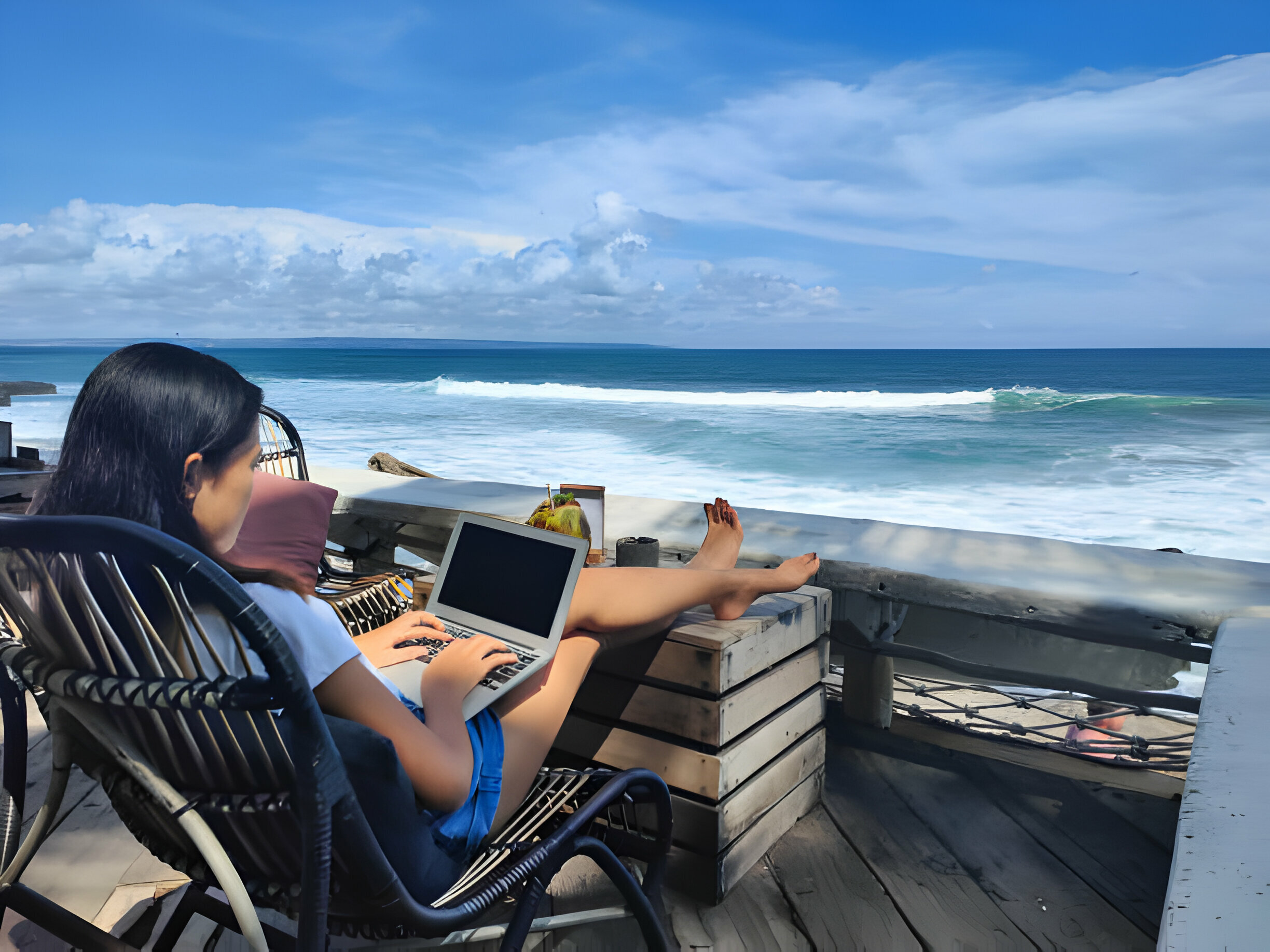List of Things to Do Before Traveling Overseas
Traveling overseas can be an exciting and enriching experience, but it also requires some preparation to make the most of your trip and ensure a smooth journey, planning and taking care of some essential tasks before you go is important.
This article provides a list of things to do before traveling overseas, covering everything from visas and vaccinations to finances and packing.
Read also: How to Write a Permission Letter to Travel
Getting Started With Your Traveling Preparations
One of the first things to consider before traveling overseas is whether you need a visa for your destination. Depending on your nationality and the purpose of your trip, you may need to apply for a visa in advance or obtain one upon arrival.
Another important aspect of preparing for overseas travel is ensuring that you have the necessary vaccinations and medications. Depending on your destination, you may need to get vaccinated against certain diseases or take preventative medication such as anti-malaria tablets.
It’s a good idea to consult with a travel health specialist or your doctor to determine what vaccinations and medications you need and to schedule any necessary appointments well in advance of your trip.
List of Things to Do Before Travelling Overseas
Traveling overseas can be an exciting and enriching experience, but you need to be well-prepared. Here are some essential things to do before traveling abroad:
- Research Visa and Entry Requirements
- Check Travel Advisories
- Secure Important Documents such as the passport, visa, and travel insurance policy
- Plan for Communication because certain social media apps may be blocked. Therefore a VPN may be necessary
- Prepare for Health and Medication
- Secure Finances and Pack Appropriately
- Secure Home and Finances Before Leaving
- Use Travel Apps and Checklists for navigation, currency conversions, etc
- And many more
Follow these essential steps and adequately prepare for the trip, so you can enhance your international travel experience and ensure a more enjoyable and stress-free journey.
Read also: How to Become a Digital Nomad: Earn While Traveling
Passport and Visa Requirements
Check Passport Validity
Before traveling overseas, it is important to check the validity of your passport. Most countries require that your passport be valid for at least six months beyond the date of your return trip. Therefore, it is recommended to check your passport’s expiration date and renew it if necessary.
It is without question that you ensure that your passport has enough blank pages for entry and exit stamps.
Some countries require up to two blank pages, so it is advisable to check the specific requirements of the country you plan to visit.
Apply for Visas
In addition to having a valid passport, some countries require a visa for entry. A visa is a document that allows you to enter a foreign country for a specific purpose and period.
The requirements for obtaining a visa vary depending on the country you plan to visit and the purpose of your trip.
It is non-negotiable to research the visa requirements for the country you plan to visit well in advance of your trip.
Some countries require a visa application to be submitted several months before your planned departure date. Additionally, some visas may require supporting documentation such as a letter of invitation, proof of financial support, or a medical certificate.
In all, checking your passport validity and obtaining the necessary visas are crucial steps to take before traveling overseas because by doing so, you can ensure a smooth and hassle-free trip abroad.
Read also: Australia 5 Years Work Visa: Requirements and Application Process
Health and Safety
Get Vaccinated
Before traveling overseas, it is important to check with a doctor or travel health clinic to determine which vaccinations are required for the destination. Some countries require proof of certain vaccinations before allowing entry. In addition, travelers should ensure that their routine vaccinations, such as tetanus and measles, are up to date.
Arrange Travel Insurance
Travelers should consider purchasing travel insurance to cover unexpected medical expenses and emergencies. This is especially important if the traveler has a pre-existing medical condition. Insurance policies vary, so it is important to read the fine print and understand what is covered.
Research Local Health Concerns
Different countries have different health risks that travelers should be aware of. For example, some areas may have a higher risk of mosquito-borne illnesses such as malaria or dengue fever. Travelers should research local health concerns and take appropriate precautions, such as using insect repellent or wearing protective clothing.
Take health and safety seriously when traveling overseas. By getting vaccinated, arranging travel insurance, and researching local health concerns, travelers can help ensure a safe and healthy trip.
Financial Planning
Notify Your Bank
Before traveling overseas, you must notify your bank of your travel plans. This will prevent your bank from flagging your transactions as suspicious and potentially freezing your account.
You can usually do this online or by calling your bank’s customer service line. Make sure to provide them with the dates and locations of your trip.
Exchange Currency
It’s important to exchange currency before leaving for your trip. This will ensure that you have cash on hand for any expenses that require it. You can exchange currency at your local bank or at a currency exchange kiosk. It’s important to shop around for the best exchange rates to ensure that you get the most out of your money.
Budget for Your Trip
Creating a budget for your trip can help you avoid overspending and ensure that you have enough money for all of your planned activities. Make a list of all of the expenses you anticipate, including flights, accommodations, transportation, food, and activities.
Be sure to include a buffer for unexpected expenses. Once you have a budget in place, stick to it as closely as possible to avoid any financial stress during your trip.
Packing Essentials
Adapt to the Climate
Before packing, it is important to research the climate of your destination. This will help you determine what type of clothing to pack.
For example, if you are traveling to a tropical destination, pack lightweight, breathable clothing made of natural fibers. If you are traveling to a colder destination, pack warm clothing made of wool or fleece. It is also important to pack a rain jacket or umbrella if there is a chance of rain.
Read also: How to Get a Job Permit in USA
Electronics and Adapters
When traveling overseas, it is important to pack the necessary electronics and adapters. Check to see if your destination has a different voltage or plug type than your home country.
If so, you will need to purchase a voltage converter or adapter to ensure that your electronics will work properly. It is also a good idea to pack a power bank to keep your devices charged while on the go.
Pack Necessary Medications
It is vital to pack any necessary medications when traveling overseas. This includes prescription medications, over-the-counter medications, and any necessary medical supplies.
It is also a good idea to pack a copy of your prescriptions in case you need to refill them while abroad. If you have any medical conditions, it is important to research the availability of medical care at your destination and pack any necessary medical documents or information.
Travel Itinerary
Before traveling overseas, it is essential to create a travel itinerary to ensure a smooth and enjoyable trip. A travel itinerary is a detailed plan of your trip that includes information about your accommodations, activities, and transportation options.
Book Accommodations
The first step in creating a travel itinerary is to book your accommodations. Research the best hotels, hostels, or vacation rentals in the area you will be visiting and make reservations as soon as possible. This will ensure that you have a comfortable place to stay during your trip.
Plan Your Activities
Once you have your accommodations booked, it’s time to plan your activities. Research the top tourist attractions, museums, and restaurants in the area and make a list of the ones you want to visit. It’s also a good idea to leave some free time in your itinerary to explore the area on your own or relax.
Read also: Jobs in Canada for Immigrants: Tips and Resources
Check Transportation Options
Finally, it’s important to check your transportation options. Research the best ways to get around the area, whether it’s by public transportation, taxi, or rental car. Make sure to book any necessary transportation in advance to avoid any last-minute scrambling.
By following these steps and creating a detailed travel itinerary, you can ensure a stress-free and enjoyable trip overseas.





